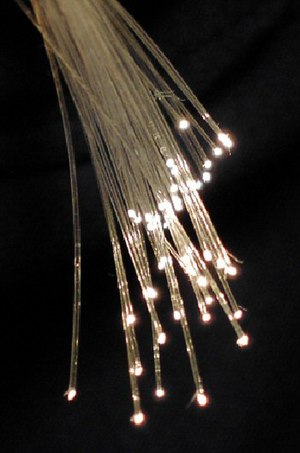Impulsivity Translated for Street Applications: The Impulsive Brain
September 13, 2009Brains and Genes: Attention And Cognition Spelled Out
September 21, 2009Can't Make That National ADHD Meeting? – Bring It To Your Home.
And the best news: attend live, or attend through the year – anytime you want. National experts on MP3 for that ride to work! The best advantage: great speakers, the latest insights, lowest cost, available for replay.
Ah yes…. the power of telecommunication!
This virtual conference is designed to give you the tools you need so you and your family can succeed and to help you break out of isolation of ADHD struggles, as you connect with peers who are in your shoes, everyday. Since this is a virtual conference, you can save more than $1,449 by attending from the comfort of your own home, your car, your office or the beach!
You've heard me talking and reporting from these CorePsych Blog pages for years about the many challenges with ADHD meds – and I can tell you now, without reservation, medication challenges are still abundant! Sorry for preaching to the choir – you know they are, – you either see or hear about mediation problems everyday.
Do take this yearly opportunity to tune in for the latest, download there my Complimentary 22 page White Paper /handout [Precise Solutions for the 10 Most Common Challenges with ADHD Medications], – and join me and Jennifer Koretsky's band of Virtual ADHD international brothers and sisters to connect on a variety of practical solutions. Amen , Hallowell, Quinn, and many others will be there – see the agenda and presenters here – it's an ADHD VIE [Very Important Event].
Or simply click on the Virtual ADHD badge over here to the right >>>
Hope to see you there,
Talk soon,
cp
Related articles by Zemanta
- Adult ADHD Today Show Segment (myaddblog.com)
- Dr. Parker Demystifies the ADHD Medication Mystery (adderworld.com)


![Reblog this post [with Zemanta]](http://img.zemanta.com/reblog_c.png?x-id=0f0ba19c-1343-4c0d-bc4f-8d6662f027c7)
4 Comments
Thank you for another great post.
I look forward to many more entries with high quality info.
craigslist software Features
A preliminary study on ADHD suggests that transcentential mediation may offer significant improvement for ADHD symptoms. Researchers assessed a small group of young students with respect to behavior, power of concentration, and ability to think. They then taught the students to perform transcendental mediation in which they sat comfortably with their eyes closed while silently repeating a sound, word, or phrase for 10 to 15 minutes. The students meditated twice a day over a three-month period, after which their ADHD symptoms were assessed again. Scientists found that the students showed significant improvements in attention, working memory, organization, behavior regulation, and ability to learn new information. The students reported lower levels of stress and anxiety as well, according to the study, which was pubished December, 2008, in Current Issues in Education.
The study suggest that mediation may be a useful, natural, holistic option for those with ADHD. When you combine meditation while also avoiding both prescription and OTC drugs that contain anticholinergics, you would be taking two powerful steps to improving the functioning of the brain. What are anticholinergics? They a class of drugs KNOWN to interfere with normal cognitive function. Anticholinergics BLOCK receptors within the brain for an important brain chemical called acetylcholine. Actelycholine, among other things, helps to keep previously learned information from interfering with the ability to learn and remember new information, but this neurotransmitter chemical is blocked by virtually HUNDREDS of drugs available in the U.S. Brand names of OTC drugs include Advil PM, Bayer Asprin Pain Reliever PM,Benadryl, Drfamamine, Excedrin PM, Nytol, Sominex, Tylenol PM, and Unisom.
Prescription meds include a number of drugs used to treat hypertension, depression, Parkinson’s disease, vertigo, asthma, cardiovascular disease, incontinence, phychotic symptoms and behavioral problems. Abnormally low levels of acetycholine in regions of the brain involved in the regulation of memory and learning contribute substantially to the cognitive impairment and behavioral symptoms of people. It is KNOWN that increased availability of acetycholine helps improve cogntion and memory, yet, in our society, we literally subdue our cognitive abilities through the very “medications” we take that are suppose to help us. Remember that anticholinergics block receptors for acetylcholine, they deprive neurons in the brain of the neurotransmitter and produce a range of cognitive deficits affecting attention, the recording of incoming sensory information in memory, and other functions. The main message here is it is VERY important to recognize the negative impact certain medications can have on OUR brain, and to avoid those medications if at all possible.
When you combine these two suggested strategies with many other dietary principles that subdue inflammation within the brain as well as throughout the body, and take several natural supplements that ENHANCE cognitive development rather than impede it’s functioning, well, you just may see a new YOU :)) NIck Tompanis, nutrition consultant
Nick,
Thanks for your comprehensive comment here – completely agree and wholeheartedly approve of this report and your perspective. TM applied in some school systems has proven consistently beneficial, and TM trainers have seen significant improvements.
The big challenge for the public: will TM interfere with their religious/spiritual practice? The firm answer is no, but that acceptance is even further away than simply getting the meds used correctly when we do use them.
The most important point, many options exist short of running meds on everyone. Stay tuned for more interesting reports on the usefulness of neurotransmitter precursors.
And thanks again for your excellent review – the anticholinergic dimension will be helpful to many.
cp
You’re very welcome 🙂